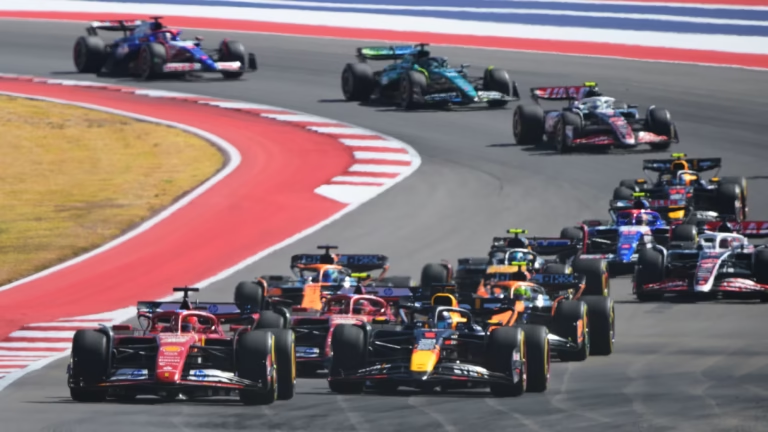Formula 1 is often celebrated for its speed, precision, and technological brilliance on the track. Yet behind the roaring engines and split-second pit stops lies an equally impressive feat: the orchestration of logistics on a global scale. Every race weekend is underpinned by a meticulously planned supply chain, where thousands of components, from motorhomes to pit-wall equipment, must arrive at the right place, at the right time, in perfect condition.
“We delivered 68 Grand Prix over two seasons, covering almost half a million kilometres across 52 countries and transporting 18 equipment kits of six containers each,” explains Rolf Lucht, Director of Healthcare Germany and Central Europe at CEVA Logistics, who has been intimately involved with Ferrari’s logistical planning. “It is a pretty big challenge, both from a customs and a sustainability perspective.”
For Ferrari, every shipment carries more than just material—it carries the potential to influence the outcome of a race. “We support them on their engineering and routing, we find the best service providers, manage customs documents, establish emergency protocols, and even help manage the carbon footprint of their operations,” Lucht says. “Formula One is not the first sport people associate with sustainability, but we are doing everything to lower the environmental impact of transporting the equipment.”
Logistics decisions are far from straightforward. Ferrari’s race calendar spans the globe, and disruptions can occur at any moment. Lucht recounts rerouting shipments during the Red Sea crisis, where vessels were unable to pass through the Bab el-Mandab Strait due to geopolitical tensions. “We had at least three days to change the mode of transport. We organised air charters for urgent shipments. It is daily business for us, but not with this kind of material,” he notes. The priority, he explains, is ensuring that “no Ferrari engineer is left without their gear at a pit wall at any racetrack.”
Even natural disasters complicate planning. The 2023 Imola Grand Prix in Italy was cancelled due to flooding, creating the challenge of rescuing equipment already on site. “We had to save everything from the flood because it is expensive material,” Lucht says. Similar scenarios occurred at the 2023 Bahrain Grand Prix, highlighting the constant need for backup plans. “As a logistics team, you always need a plan B. The problem is that it rarely unfolds exactly as you imagined, so adjustments are essential.”
Balancing speed and sustainability
While urgency often dictates airfreight use, Lucht explains that sea and land transport form the backbone of Ferrari’s global operations. “Most of the time we do this by sea freight because the carbon footprint is much better,” he says. Intermodal solutions—using a combination of road, rail, and sea—allow the team to move heavy and sensitive equipment efficiently. For instance, a shipment from Montreal to Las Vegas passed through rail and road segments across the United States to reduce both time and environmental impact.
The Miami Grand Prix offered another example of innovative planning. Rather than sending a kit back from Malaysia to Latin America, CEVA stored it locally for six months, significantly reducing emissions from unnecessary shipping. Lucht emphasises that these strategies require constant monitoring. “Sometimes you know the exact day a vessel arrives 4–6 days in advance. Sometimes it is five weeks. Planning a high-tech, high-stakes sport like Formula One with sea freight is challenging, but it drops the carbon footprint dramatically.”
Logistics at this level demands foresight, flexibility, and relentless attention to detail. “It doesn’t matter what you move, it doesn’t matter where you have to move it. At the end of the day, there is always a team thinking about the best way to move it. That is the result,” Lucht said.





